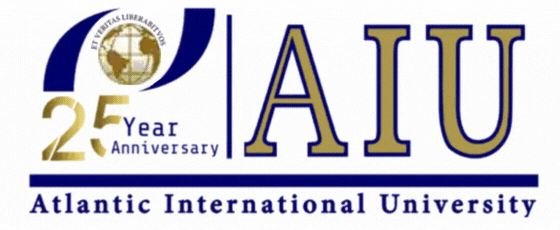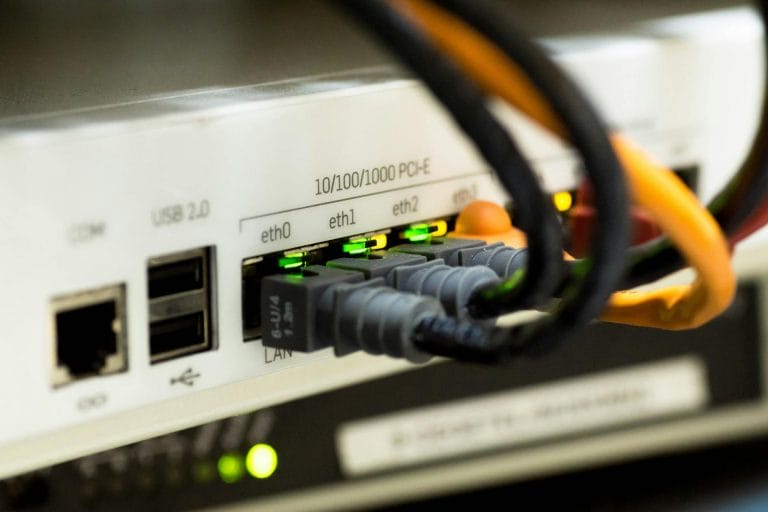- RESEARCHDistance Learning at AIU is enhanced by vast academic resources and innovative technologies build into the Virtual Campus: Hundreds of self-paced courses with video lectures and step by step lessons, thousands of optional assignments, 140,000 e-books, the Social Media & Networking platform allowing collaboration/chat/communications between students, and MYAIU develop students holistically in 11 areas beyond just academics.
- PROGRAMS OFFERED
- Areas of Study
- Courses and Curriculum
- Open Courses
- Register for a Program
- Associate Program
- Associate in Addiction Counseling
- Associate in Agriculture Food And Resources
- Associate in Anti Terrorism Security
- Associate in Behavior Analysis In Special Education
- Associate in Bioethics
- Associate in Climatology
- Associate in Cultural Theological Communication
- Associate in Culinary Arts
- Associate in Ecotechnology
- View all Associates Programs
- Bachelor Program
- Bachelors in Community Development
- Bachelors in Environmental Science
- Bachelor in Education (B.Ed, BS)
- Bachelors in Economics
- Bachelors in Entrepreneurship
- Bachelors in Financial Administration
- Bachelors in Human Resource Management
- Bachelors in Linguistics
- Bachelors in Nutritional Science
- Bachelors in Occupational Health and Safety
- Bachelors in Psychology
- View all Bachelor Programs
- Doctorate Program
- Doctor | of Biology (PhD)
- Doctorate in Business Administration (DBA, PhD)
- Doctor of Economics (PhD)
- Doctor of Electrical Engineering (D.Sc, PhD)
- Doctor of Finance (PhD)
- Doctorate in International Relations
- Doctorate in Information Technology (D.Sc)
- Doctor of Legal Studies (PhD)
- Doctor of Project Management (PhD)
- Doctor of Sociology (PhD, D.Sc)
- Doctorate in Sustainable Natural Resources Management
- View all Doctorate Programs
- Master Program
- Postdoctoral Program
- Postdoctoral in Animal Science
- Postdoctoral in Anti Terrorism Security
- Postdoctoral in Behavior Analysis In Special Education
- Postdoctoral in Bioethics
- Postdoctoral in Blockchain Technology and Digital Currency
- Postdoctoral in Business Management
- Postdoctoral in Cloud Computing
- Postdoctoral in Computer Engineering
- View all Postdoctoral Programs
AIU offers a wide range of majors in areas including the Arts, Business, Science, Technology, Social, and Human studies. More than 120 degrees and programs are available for adult learners at the associate’s, bachelor’s, master’s, doctoral and postdoctoral level. - VIRTUAL CAMPUS
Distance Learning at AIU is enhanced by vast academic resources and innovative technologies build into the Virtual Campus: Hundreds of self-paced courses with video lectures and step by step lessons, thousands of optional assignments, 140,000 e-books, the Social Media & Networking platform allowing collaboration/chat/communications between students, and MYAIU develop students holistically in 11 areas beyond just academics.
- ALUMNI
The world is YOUR campus!”, that is the message of AIU’s month magazine Campus Mundi. Hear the voices and see the faces that make up AIU. Campus Mundi brings the world of AIU to you every months with inspirational stories, news and achievements by AIU members from around the world (students and staff are located in over 200 countries).
DEALING WIHT FINANCIAL GRIEF AND LOSS
Navigating Financial Grief: Understanding Loss and Recovery
This document explores the emotional and behavioral impacts of financial loss, highlighting feelings such as sadness, anger, and confusion. It discusses the complexities of financial grief compared to personal loss, emphasizing the importance of acceptance, support systems, and learning from experiences to navigate recovery and rebuild after financial setbacks.

The document “Dealing with Financial Grief and Loss” by Damilola Zhang provides an in-depth examination of the emotional and psychological effects of financial loss. It begins by outlining the various forms of financial loss individuals may experience, such as unemployment, loss of assets, and the inability to meet future financial goals like saving for college or retirement. The author emphasizes that financial loss can lead to significant grief, similar to the loss of a loved one, but often goes unrecognized and unaddressed.
The text highlights several complications that arise from financial grief, including feelings of embarrassment and shame. Unlike the loss of a person, which often comes with social support and rituals, financial loss lacks these communal expressions of grief, leaving individuals feeling isolated. The document discusses how financial loss can lead to a loss of identity, as individuals may struggle to reconcile their previous status with their current situation. This can result in feelings of betrayal, particularly if the loss is tied to the actions of others, such as a failed investment or a partner’s financial mismanagement.
The author notes that people often deny the magnitude of their financial loss, telling themselves that it is not as significant as losing a loved one. This denial can lead to a devaluation of their feelings, making it harder to process the grief associated with financial setbacks. The document also outlines common emotional reactions to financial loss, including sadness, anger, guilt, anxiety, and loneliness, as well as behavioral changes such as sleep disturbances and social withdrawal.
To cope with financial grief, the author suggests several strategies. Acceptance of the situation is crucial, as is acknowledging the emotions that arise from the loss. Building a support system of trusted friends, family, or colleagues can provide a necessary outlet for discussing feelings and experiences. The document encourages individuals to reflect on past challenges they have overcome, reinforcing the idea that resilience is possible even in difficult times.
Additionally, the author emphasizes the importance of learning from financial setbacks. Each experience, whether positive or negative, can offer valuable lessons that contribute to personal growth. Ultimately, the document asserts that while financial loss is unexpected and often devastating, it is possible to navigate the grief associated with it and emerge stronger by embracing acceptance, support, and learning.
Atlantic International University
Get to know the AIU experience
Contact Us Today!
We understand how busy adults do not have time to go back to school. Now, it’s possible to earn your degree in the comfort of your own home and still have time for yourself and your family. The Admissions office is here to help you, for additional information or to see if you qualify for admissions please contact us. If you are ready to apply please submit your Online Application and paste your resume and any additional comments/questions in the area provided.
Pioneer Plaza
900 Fort Street Mall 905
Honolulu, HI 96813
800-993-0066 (Toll Free in US)
808-924-9567 (Internationally)
808-947-2488 (Fax)
AIU Success Stories







Contact Us Today!
Begin Your Journey!
AIU’s Summer of Innovation and Growth gives you the ability to earn up to $5000 in tuition credit by completing free lessons and courses.
Whether you’re looking to acquire new skills, advance your career, or simply explore new interests, AIU is your gateway to a world of opportunities. With free access to 3400 lessons and hundreds of courses the ability to earn credits and earn certificates there’s no better time to start learning.
Join us today as a Guest Student and take the first step towards a brighter, more empowered future.
Explore. Learn. Achieve.
Degrees

Contact Us
Atlantic International University
900 Fort Street Mall 905 Honolulu, HI 96813 [email protected]
Quick Links
Home | Online Courses | Available Courses | Virtual Campus | Career Center | Available Positions | Ask Career Coach | The Job Interview | Resume Writing | Accreditation | Areas of Study | Bachelor Degree Programs | Masters Degree Programs | Doctoral Degree Programs | Course & Curriculum | Human Rights | Online Library | Representations | Student Publication | Sponsors | General Information | Mission & Vision | School of Business and Economics | School of Science and Engineering | School of Social and Human Studies | Media Center | Admission Requirements | Apply Online | Tuition | Faculty & Staff | Distance Learning Overview | Student Testimonials | AIU Blogs | Register for Program | Privacy Policy | FAQ



















